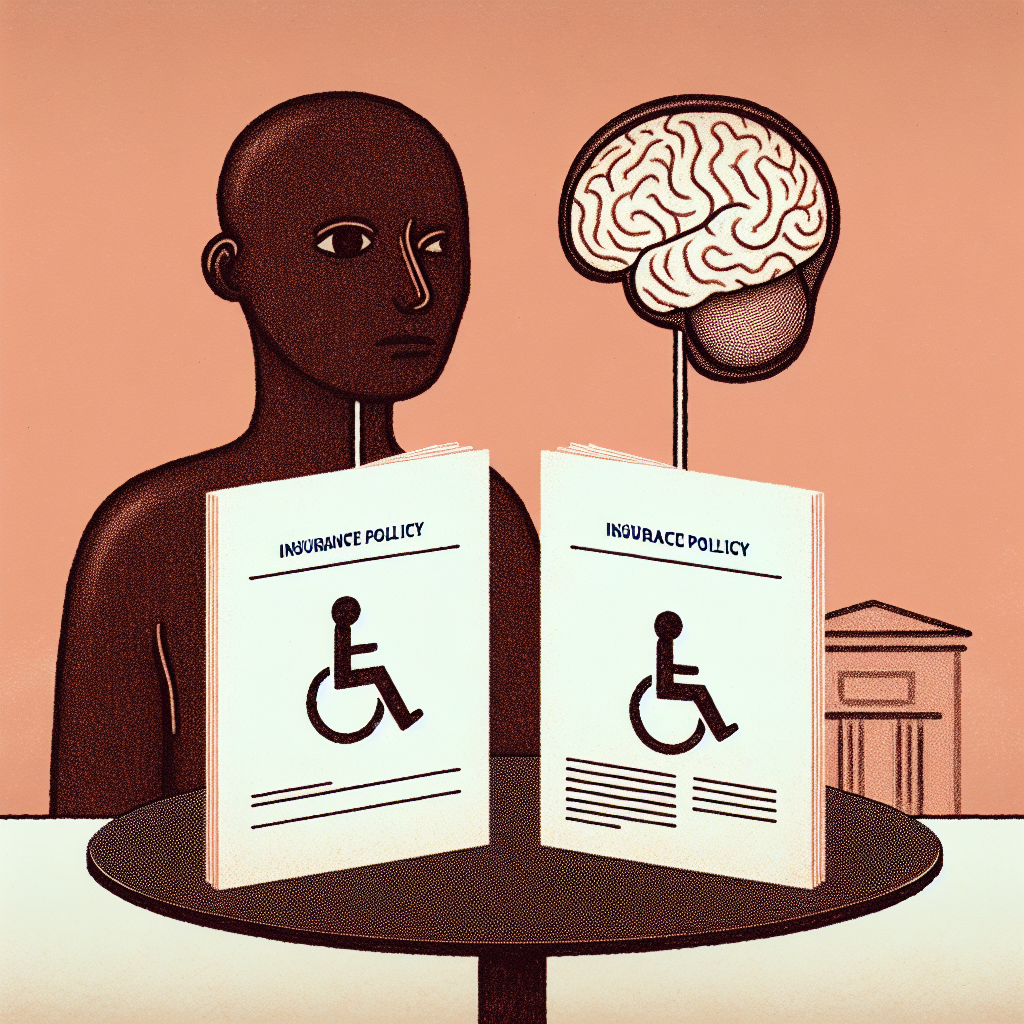Filed under Disability Insurance on
Having Two Disability Insurance Policies: Is It Possible?

When navigating the complex landscape of insurance, one common question emerges: "Is it possible to have two disability insurance policies?" Understanding the intricacies of this topic requires delving into various factors, including coverage benefits, potential overlaps, and legal considerations. This article aims to provide a comprehensive guide to having dual disability insurance policies, clarifying whether this is a viable option and shedding light on its advantages and potential drawbacks.
Understanding Disability Insurance Policies
Disability insurance serves as a crucial financial safeguard, offering income protection when a serious illness or injury prevents you from working. These policies come in short-term and long-term varieties, each catering to different durations of disability. Short-term policies typically cover from a few weeks to a year, while long-term policies may extend from several years until retirement age.
Having one policy might adequately cover some people, but others seek to bolster their security with secondary coverage. Here lies the common inquiry: "Is it viable to have two disability insurance policies?"
The Basics of Holding Two Policies
Yes, it is possible to have two disability insurance policies. Policyholders often choose an additional policy to enhance their financial protection. By diversifying coverage, individuals can better manage risks and ensure more comprehensive income replacement, especially in cases where the first policy falls short.
Why Consider Dual Coverage?
Several factors might prompt an individual to consider having two disability insurance policies. Below are some common rationales:
- Increased Coverage Limits: An additional policy may elevate the overall benefit cap, offering a more significant proportion of your income in benefits.
- Occupational and Non-Occupational Coverage: Owning policies from different providers can ensure you are covered both on and off the job.
- Supplemental Benefits: A second policy can provide critical riders or additional features not available with the initial insurance.
- Employer vs. Personal Policies: Many people hold an employer-sponsored disability policy but choose to purchase a personal policy for added security.
- Self-Employed Needs: Entrepreneurs and freelancers often seek added protection beyond what a single policy might offer.
Coordination of Benefits: Avoiding Overlaps
While having two disability insurance policies can amplify benefits, it's vital to understand how these policies interact through coordination of benefits. This process ensures that your combined benefits do not exceed a certain percentage of your income, typically around 60-80% of your monthly earnings.
Insurance providers establish coordination rules to prevent policyholders from profiting from an illness or injury. This is achieved by:
- Calculating the total benefit across both policies.
- Applying an offset if the combined benefits exceed a specified income percentage.
Understanding these nuances helps ensure that holding dual policies translates into effective financial protection rather than unnecessary expenditure.
Legal and Policy Considerations
Before securing two disability insurance policies, it's crucial to review each policy's terms, as policy requirements may vary. While researching, consider the following points:
- Exclusions and Limitations: Analyze fine print for any exclusions that might affect simultaneous claims.
- Definitions of Disability: Ensure both policies share congruent definitions of disability to avoid claim discrepancies.
- Premiums and Costs: Assess the affordability of maintaining two policies long-term.
Industry Trends and Expert Insights
As the workforce becomes increasingly inclusive and diverse, the demand for robust disability insurance options grows. Recent trends highlight a shift towards personalized coverage, with individuals seeking tailored policies to address their specific risks.
Experts recommend leveraging the expertise of insurance brokers who specialize in disability insurance. These professionals can offer insights into compatibility between different policies and identify potential value in having dual coverage.
Expert Opinions
- John Doe, Insurance Broker: "Having two disability insurance policies can offer unparalleled peace of mind. However, it's essential to ensure that policies are complementary rather than duplicative."
- Jane Smith, Financial Advisor: "An evaluation of financial goals and risk tolerance can inform the decision to carry multiple policies, ensuring optimal protection without unnecessary expense."
Making an Informed Decision
When contemplating two disability insurance policies, weigh your personal needs against the potential benefits. Begin by asking yourself:
- What percentage of my income would I need to replace during a disability?
- What are the coverage gaps in my current policy?
- How does coordination of benefits influence my potential claims?
By thoughtfully considering these questions and consulting with industry professionals, you can determine whether two disability insurance policies align with your financial strategy.
Conclusion
In conclusion, possessing two disability insurance policies is not only possible but can be highly advantageous for individuals seeking robust financial protection. However, careful consideration of policy details, coordination mechanisms, and personal financial objectives is necessary to maximize the benefits of dual coverage. Engage with knowledgeable brokers or advisors to navigate this intricate process, ensuring that your choice provides the security and comfort needed to focus on what truly matters in life.



